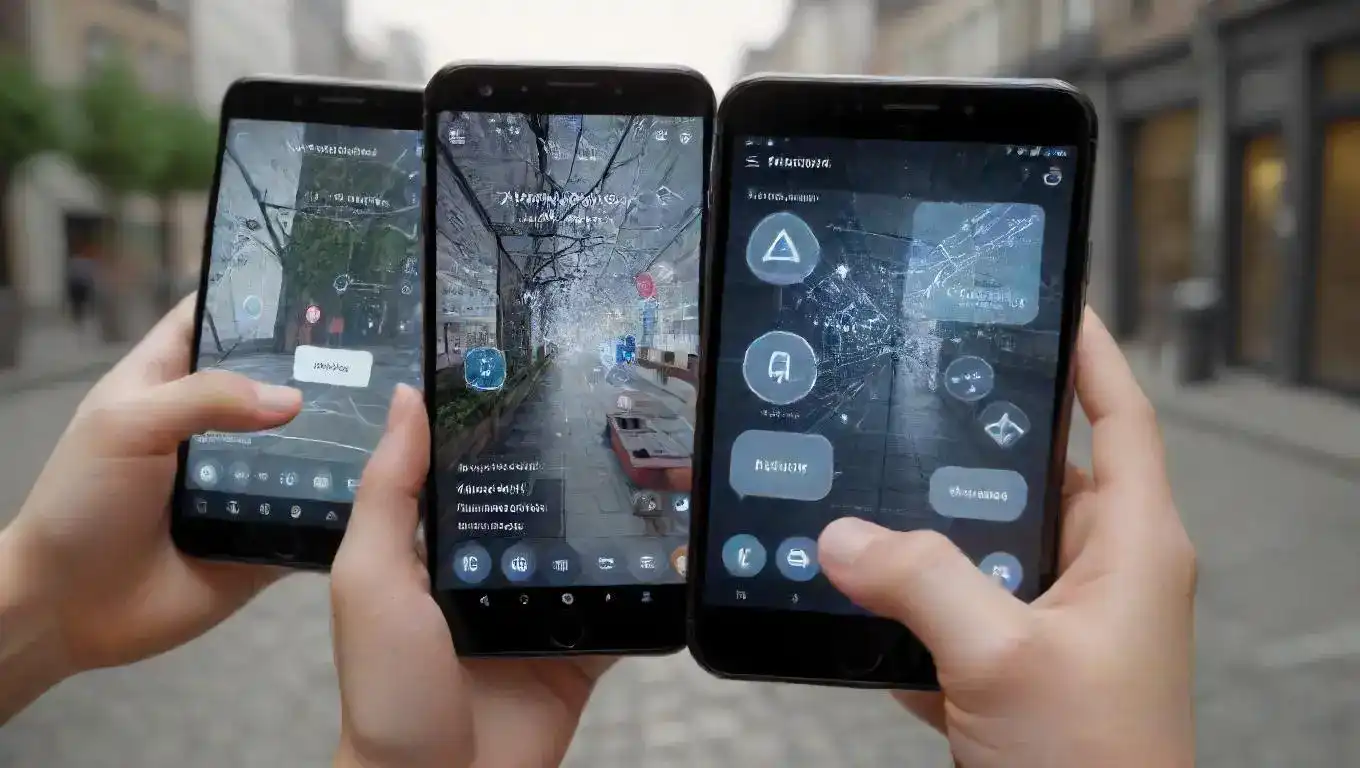How Long is a Business Day
Emily Willis

Photo: How Long is a Business Day
The term "business day" seems straightforward enough. At first glance, it conjures images of bustling offices, productive meetings, and the general hum of commerce. Most people instinctively think of the typical Monday through Friday workweek, generally from 9 AM to 5 PM. But is it really that simple? As it turns out, the answer is a resounding "not always." The seemingly simple concept of a "business day" can be surprisingly complex, with nuances that significantly impact everything from financial transactions and legal deadlines to shipping schedules and international agreements.
Understanding what truly constitutes a "business day" is more than just academic; it's a practical necessity in our interconnected world. Misinterpretations can lead to missed deadlines, unexpected delays, and even financial penalties. This comprehensive guide will unravel the intricacies of the "business day," exploring its common definitions, special cases, and practical implications, ensuring you're well-equipped to navigate its often-tricky terrain.
The Common Understanding: More Than Just 9 to 5
At its core, a "business day" refers to a day when businesses are typically open and operating. This standard understanding forms the bedrock for many daily activities and expectations.
What is a "Business Day" Anyway? (Basic Definition)
Generally speaking, a business day is any day of the week that is not a weekend (Saturday or Sunday) or a public holiday. This definition is widely accepted in many countries, especially in Western economies. It implies that on these days, standard business operations, from banking to customer service, are in full swing. When a company states a product will ship in "3 business days," they are typically referring to this common Monday-to-Friday definition, excluding any official holidays.
The Standard Workweek: Monday to Friday
For the vast majority of industries and individuals, the standard workweek runs from Monday morning through Friday afternoon. This five-day period is when most commercial activities occur. This traditional structure dates back to historical labor movements and has become the de facto norm for calculating everything from project timelines to service level agreements. For instance, if you submit an application on a Friday afternoon, and it takes "two business days" to process, you wouldn't expect it to be ready until Tuesday, as Saturday and Sunday would not count.
Why Weekends and Holidays Don't Count
The exclusion of weekends and public holidays from the definition of a "business day" is logical. During these times, most businesses are closed, and essential services like banks, post offices, and government agencies operate on reduced hours or are completely shut down. This closure means that transactions cannot be processed, deliveries cannot be made, and official communications are largely paused. Therefore, for the purpose of commercial and legal timelines, these days are effectively "non-business days."
Diving Deeper: When a Business Day Isn't So Simple
While the Monday-to-Friday rule is a good starting point, the true definition of a "business day" can become more nuanced depending on the context, industry, and even geographical location.
The Crucial Role of Time Zones
In an increasingly globalized world, time zones play a critical role in defining a "business day," especially for international transactions or communications. A "business day" in London is already winding down when a "business day" is just beginning on the West Coast of the United States. If a deadline is set for the "close of business" on a particular day, it's vital to clarify which time zone applies. Without this clarification, a seemingly clear deadline can lead to confusion and missed opportunities across continents. For example, a contract stating "payment due within 5 business days" for a U.S. company dealing with an Asian supplier needs to specify if those days are based on New York time or Tokyo time.
Banking and Financial Business Days: A Special Case
When it comes to money, precision is paramount. Banking business days often have specific definitions that can differ slightly from the general understanding. While they generally follow the Monday-to-Friday rule, excluding federal holidays, banks also have "cut-off times."
- Cut-off Times Explained: If you initiate a transaction, like a wire transfer or a check deposit, after the bank's daily cut-off time (which might be 3 PM or 5 PM local time), that transaction may not be processed until the next business day. This is crucial for understanding when funds will be available or when payments will clear. For example, a deposit made on Friday evening might not be credited until Monday morning, even though Friday was technically a "business day."
- Impact on Transactions: This concept significantly impacts the speed of financial transactions. Knowing a bank's specific definition of a "business day" and its cut-off times is essential for managing cash flow, meeting payment deadlines, and avoiding overdraft fees.
Legal and Contractual Business Days: Precision Matters
In legal documents and contracts, the definition of a "business day" is often explicitly stated to avoid ambiguity. This is because legal deadlines can have significant consequences.
- Importance in Agreements, Deadlines: Contracts might specify "five business days from the signing date" for a certain action to be completed. Without a precise definition, disputes can arise. Legal definitions typically align with the standard Monday-
Latest ✨
View AllUnpack the Gen Z lifestyle movement: how these digital natives are reshaping society, work, and culture with their unique values and digital DNA.
Emily Willis
Fiscal policy is a crucial tool used by governments to influence economic activity and achieve various objectives. It involves decisions on government spending, taxation, and borrowing. During economic downturns, fiscal policy plays a key role in supporting recovery, stimulating demand, and promoting growth.
Emily Willis
Unlock business growth! Learn how personalized marketing transforms interactions, boosts engagement & loyalty by speaking directly to your customers.
Emily Willis
Explore blockchain's true power beyond crypto. See how enterprise applications transform business operations, boosting efficiency, trust & transparency.
Emily Willis
Business
View All
June 9, 2025
Boost Employee Engagement NowBoost employee engagement for a thriving workforce! Discover how to improve productivity, reduce turnover, & increase profitability with our comprehensive guide...
Emily Willis

June 8, 2025
Talent Acquisition: Find the Best PeopleMaster strategic talent acquisition. Go beyond recruitment to identify, attract, & secure top talent that drives innovation & future organizational success.
Emily Willis

June 8, 2025
Debt Management for Business StabilityUnlock business stability! Learn strategic debt management to fuel growth & avoid pitfalls. Your comprehensive guide.
Emily Willis
Economy
View AllWhy aren't we purely rational? Explore behavioral economics to understand the psychological forces, biases, and emotions that predictably guide your daily decis...
Read MoreIn today's rapidly changing economic landscape, innovation and resilience are more important than ever. Innovation drives progress and competitiveness by creating new ideas and solutions to meet market needs. Resilience helps businesses withstand shocks and bounce back from setbacks by planning strategically and diversifying resources.
Read MoreNavigate scarcity with resource economics. Learn how to manage, allocate, and preserve natural resources for a sustainable future and a balanced economy.
Read MoreEntertainment
View All
July 5, 2025
On Par Good TimesTired of fleeting happiness? Learn to cultivate 'on par good times' for consistent fulfillment & balanced well-being. Get actionable strategies now!
Emily Willis

August 4, 2024
Exploring Virtual Reality (VR) in Entertainment: Future Applications and DevelopmentsVirtual Reality (VR) technology is revolutionizing the entertainment industry by providing immersive and interactive experiences that transform audience interaction with content. VR creates simulated environments that allow users to engage with virtual worlds, characters, and narratives in ways that traditional media cannot.
Emily Willis

August 4, 2024
The Evolution of Digital Distribution in the Music Industry: Challenges and OpportunitiesThe music industry has been transformed by digital distribution, which allows quick access to a vast catalog of music through streaming services and online stores.
Emily Willis
Health
View AllDiscover the comprehensive and critical services offered by ECMC Erie's ER Hub. Essential care when you need it most.
Emily Willis
In today's fast-paced world, stress, anxiety, and depression are common mental health challenges that can affect our overall well-being. Understanding these issues and taking steps to manage them is important. Strategies for managing mental health include prioritizing self-care, practicing mindfulness and relaxation techniques, challenging negative thoughts, connecting with others, developing healthy coping mechanisms, managing time effectively, and seeking professional help when needed.
Emily Willis
Unlock a vibrant life! Embrace the gentle power of walking for profound physical and mental health benefits. Accessible to all.
Emily Willis
Trending 🔥
View All
1
2
3
4
5
6
7
8
9
10
Lifestyle




Sports
View AllAugust 5, 2024
Inclusive Playing Field: Creating a Welcoming and Accessible Sports Environment
Read MoreTechnology
View All
August 5, 2024
The Future of IoT and Its Potential to Improve Quality of Life
The Internet of Things (IoT) is a transformative force that is revolutionizing daily life by connecting devices and enabling them to exchange data autonomously. The growth trajectory of IoT is projected to surpass 75 billion connected devices by 2025, impacting various sectors such as healthcare, smart cities, agriculture, and home automation.

August 4, 2024
Revolutionizing Healthcare with Artificial Intelligence: Current Trends and Future Prospects
Artificial Intelligence (AI) is transforming the healthcare industry by improving diagnostic accuracy, personalizing treatment plans, and accelerating drug discovery. AI applications in diagnostics, imaging, patient care, and drug development are enhancing efficiency and patient outcomes. However, ethical considerations such as data privacy and algorithm bias must be addressed. The future of AI in healthcare looks promising with advancements in natural language processing, robotic surgery, and remote patient monitoring. Embracing AI technologies responsibly will lead to a more accessible, efficient, and patient-centered healthcare system.

August 5, 2024
Best AR Translation Apps Tested
Uncover the best AR translation apps on the market through our in-depth testing and reviews. From seamless voice conversations to real-world text translation, these apps will revolutionize the way you communicate across languages.

August 4, 2024
The Metaverse: A Virtual World with Endless Possibilities
metaverse is a rapidly evolving concept that offers a network of interconnected 3D virtual spaces accessed through technologies like VR and AR.
















